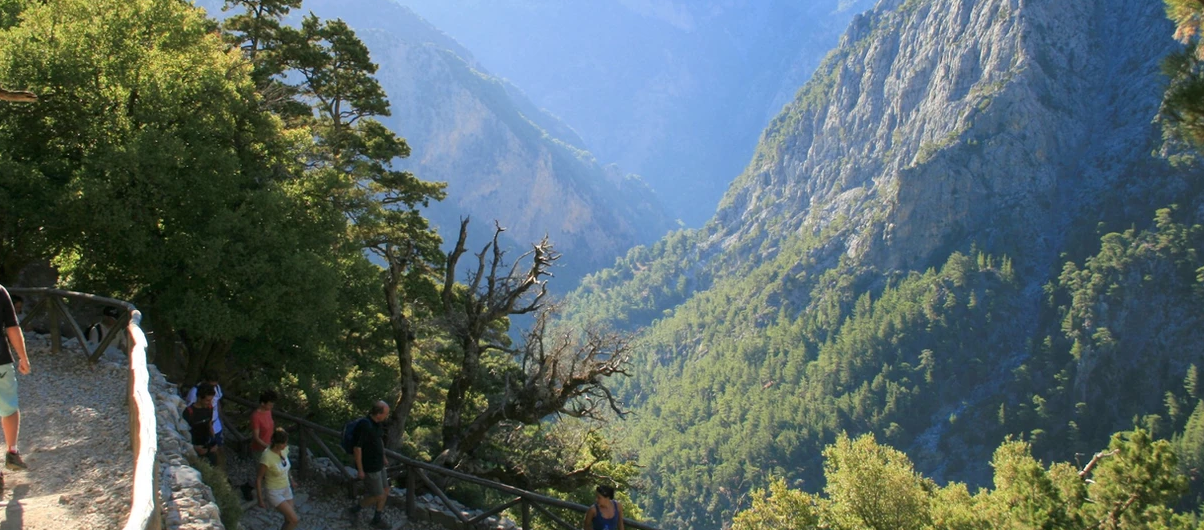Crete, the largest of the Greek islands, is renowned for its stunning landscapes, rich cultural heritage, and vibrant biodiversity. As global awareness of environmental issues grows, more travelers are seeking sustainable ways to explore the world. Ecotourism in Crete offers a perfect blend of responsible travel and authentic experiences, allowing visitors to enjoy the island’s natural beauty while supporting conservation efforts and local communities. This guide delves into the various ecotourism options available in Crete, highlighting how you can travel sustainably and make a positive impact.
Understanding Ecotourism
Ecotourism is a form of sustainable travel that emphasizes conservation, community involvement, and education. It aims to minimize environmental impact, promote awareness of local ecosystems, and support the well-being of local communities. In Crete, ecotourism encompasses a range of activities that allow visitors to immerse themselves in the island’s natural and cultural landscapes.
Exploring Natural Wonders
Crete’s diverse ecosystems, from its rugged mountains to its pristine beaches, offer countless opportunities for eco-friendly adventures.
Hiking and Nature Trails
Samaria Gorge: One of the most famous hiking destinations in Crete, the Samaria Gorge is a UNESCO Biosphere Reserve that stretches 16 kilometers through the White Mountains. The hike offers stunning views, rich biodiversity, and the chance to see rare species such as the kri-kri (Cretan wild goat). Sustainable tourism practices in the gorge include maintaining designated trails and educating hikers on preserving the natural environment.
Psiloritis Natural Park: Home to Crete’s highest peak, Mount Ida (Psiloritis), this UNESCO Global Geopark features a network of trails that take hikers through diverse landscapes, including forests, caves, and alpine meadows. Guided tours are available, providing insights into the park’s geology, flora, and fauna.
Marine Ecotourism
Elounda Bay: Known for its crystal-clear waters and vibrant marine life, Elounda Bay offers eco-friendly activities such as snorkeling, scuba diving, and sea kayaking. Local operators adhere to sustainable practices, including avoiding sensitive areas and educating tourists on marine conservation.
Protected Marine Areas: Crete’s coastline includes several protected marine areas, such as the islet of Chrissi and the coastal region of Vai. These areas are home to diverse marine ecosystems and are ideal for eco-friendly activities like snorkeling and responsible wildlife watching.
Supporting Local Communities
Ecotourism in Crete goes beyond enjoying nature; it also involves supporting local communities and preserving cultural heritage.
Agritourism
Traditional Farms and Olive Groves: Agritourism allows visitors to experience Cretan agriculture firsthand. Many traditional farms and olive groves offer tours, workshops, and tastings, showcasing sustainable farming practices. Visitors can learn about organic olive oil production, traditional cheese-making, and other agricultural traditions that have been passed down through generations.
Eco-Friendly Accommodations: Staying in eco-friendly accommodations is a key aspect of sustainable travel. Many guesthouses, boutique hotels, and agrotourism establishments in Crete are committed to sustainable practices, such as using renewable energy, conserving water, and sourcing local, organic produce.
Cultural Experiences
Local Festivals and Workshops: Participating in local festivals and workshops is a great way to immerse yourself in Cretan culture while supporting community initiatives. Festivals often celebrate traditional music, dance, and cuisine, providing a platform for local artisans and performers. Workshops on pottery, weaving, and cooking offer hands-on experiences and help preserve traditional crafts.
Conservation Efforts
Ecotourism in Crete is closely linked to conservation efforts aimed at protecting the island’s natural and cultural heritage.
Wildlife Conservation
Natura 2000 Sites: Crete is home to numerous Natura 2000 sites, which are protected areas aimed at conserving Europe’s most valuable and threatened species and habitats. Visitors to these sites can engage in eco-friendly activities such as birdwatching, hiking, and photography, while also learning about the importance of conservation.
Marine Turtle Conservation: Crete’s beaches are important nesting sites for the endangered loggerhead sea turtle (Caretta caretta). Organizations such as Archelon, the Sea Turtle Protection Society of Greece, run conservation programs that include monitoring nesting sites, rescuing injured turtles, and educating the public. Visitors can volunteer with these programs or participate in eco-tours that support turtle conservation.
Practical Tips for Sustainable Travel
- Choose Eco-Friendly Accommodations: Opt for hotels and guesthouses that have implemented sustainable practices, such as using renewable energy, reducing waste, and supporting local communities.
- Minimize Waste: Reduce plastic use by carrying reusable water bottles, bags, and containers. Dispose of waste responsibly and recycle whenever possible.
- Respect Wildlife and Nature: Follow designated trails, maintain a safe distance from wildlife, and avoid picking plants or disturbing natural habitats.
- Support Local Businesses: Buy local products, dine at locally-owned restaurants, and use local guides and tour operators. This helps boost the local economy and ensures that your travel dollars benefit the community.
- Learn and Educate: Take the time to learn about the environmental and cultural significance of the places you visit. Share your knowledge with others to raise awareness about the importance of sustainable travel.
Conclusion
Ecotourism in Crete offers a rewarding way to explore the island’s natural beauty and cultural richness while making a positive impact on the environment and local communities. By choosing sustainable travel options, you contribute to the preservation of Crete’s unique ecosystems and support the well-being of its inhabitants. Whether you’re hiking through ancient gorges, snorkeling in protected marine areas, or participating in traditional festivals, Crete’s ecotourism experiences promise unforgettable memories and a deeper connection to this remarkable island. Embrace the principles of ecotourism and discover the true essence of Crete in a way that respects and preserves its natural and cultural heritage.


